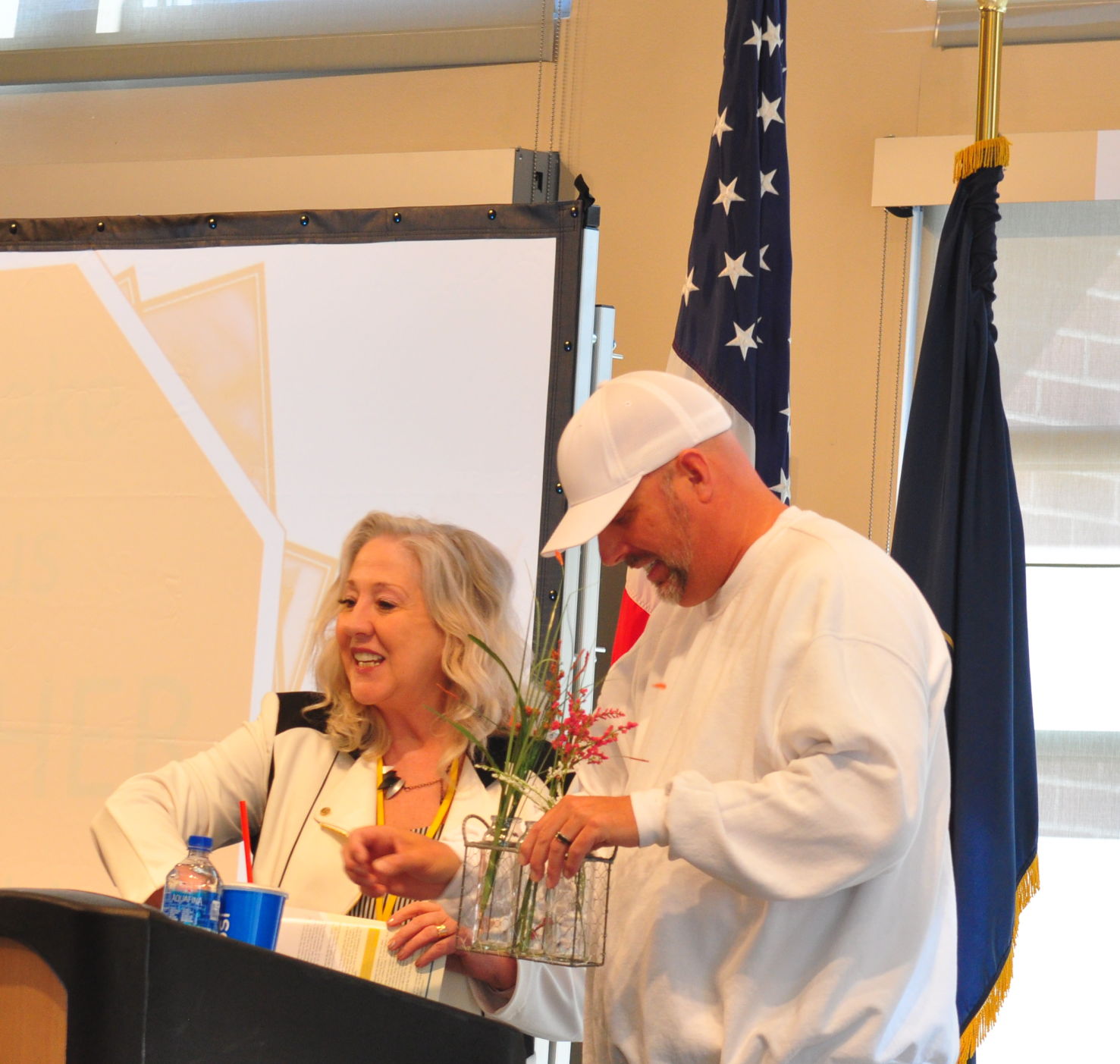It will take everyone if we’re going to have an impact on the opioid crisis.
That was the message from all the speakers at the Eastern Utah Hope Summit, held Tuesday at Utah State University Eastern.
The conference was meant to highlight opioid misuse and suicide prevention epidemic in Carbon County and across the country.
One horrible result of the crisis is that people who can’t get prescription drugs anymore will often turn to illegal drugs, often heroin.
Will Ferguson, who calls himself a “person in recovery” told the hundreds who attended the summit that it will take the entire community to do something about the crisis.
Ferguson told of his past addiction and how difficult it was to stop using drugs. He painted a bleak picture for anyone using drugs. “Everything I owned was in a backpack when I went to prison,” he told the audience. “I lost everything, and so will you,” he said to anyone who is addicted to drugs. “You (will) have three choices,” Ferguson said. “You will go to prison, die, or live on the street”
Can’t just talk
It’s not enough to just talk about it, Ferguson said. Something needs to be done about it. Although it starts with personal responsibility, that responsibility is also on doctors and pharmacists. “They are worse than drug dealers,” he said.
Ferguson asked if there were any pharmacists in the room. Michael Wright, who was also a presenter, raised his hand.
“Do you check the data-base?” Ferguson asked.
“Every time,” Wright responded.
“I believe it,” Ferguson quipped. “I never wanted to go to his pharmacy.”
The response garnered laughter from the crowd, but emphasizes an important point. Some doctors prescribe far more opioids than others. Some pharmacists just fill prescriptions because a doctor wrote it. That’s just fueling the epidemic, Ferguson said.
Wright agreed. During his remarks, he said his pharmacy, which is Smith’s, checks every prescription against the data-base every time. The data-base tracks narcotic prescriptions and tells a pharmacist if someone is attempting to scam the system.
Ferguson said there is actually an app for a computer than allows anyone to duplicate a prescription and then use that prescription to scam the pharmacy. The data-base is a check against that sort of scam. But, it must be used in order to be effective.
How bad are opiods? Wright said that when he entered pharmacy school in 1993 more adults were killed in automobile accidents than any other way. Then came alcohol, firearms, and drugs. Today drugs lead the list.
So, what do we, as a community and as a society, do about it?
It comes down to everyone doing their part. Individuals play a role, but so do mental health departments, doctors, and pharmacists. Wright explained there are alternative therapies. Doctors need to stop writing a presciption for opiods every time a patient has pain. Sometimes it isn’t even the best choice.
Other presenters
Other speakers include Kevin Hines, Patrick Rezac, and Dr. Elizabeth Howell. A panel discussion was led by local doctor Cam Williams, Carbon County Sheriff Jeff Wood and Mental Health Specialist Kara Cunningham.
In 2000 Kevin Hines jumped off the Golden Gate Bridge. He is only one of 36 people who have survived the jump. Since it was erected in 1937, over 2,000 people have attempted suicide by jumping from the bridge. Not only did Hines live, but he has become a major voice for mental health in this country.
Patrick Rezac is founder of One Voice Recovery, Inc. located in Salt Lake City. He has spent 17 years helping people with mental illness and drug addiction.
Dr. Elizabeh Howell has worked in the addictions field since 1983 in public, private, and academic settings. Since 2005 she has been an Associate Professor of Pyschiatry at the University of Utah School of Medicine.
Cam Williams has been a doctor since 1979, in Carbon County most of that time. He has served in numerous capacities and has received numerous awards.
Jeff Wood was elected sheriff of Carbon County in 2014. Prior to that he worked as a deputy sheriff in Carbon County and as an officer for Adult Parole and Probation.
Kara Cunningham works for 4 Corners Mental Health. Her passion is working with individuals with substance abuse issues and with mental health issues.

